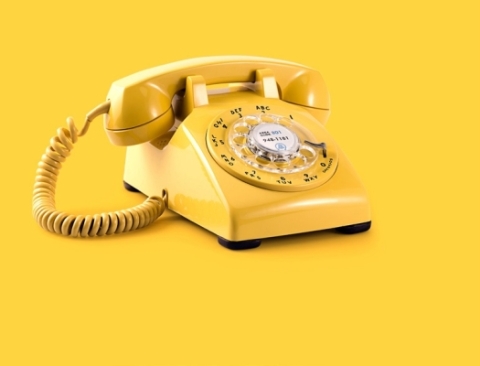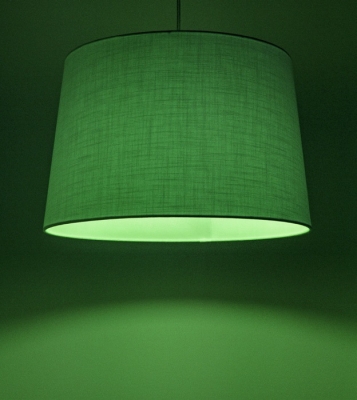Hebrew Borrows from English
Living languages borrow and exchange words and expressions, in a natural process as old as human society. The Hebrew we speak today in Israel has many loan-words from Arabic, Greek, German, Yiddish, Russian, etc. – but also from English. This article will provide some examples for your entertainment, but it is worth noting that English has borrowed from Hebrew as well, both directly and via Biblical phrases in English translation that have become idioms over the years. So it is a two-way street.
Readers seeking comprehensive treatments of today's Hebrew vernacular are referred to the books, articles and website of Ruvik Rosenthal, or to the site of the Academy of the Hebrew Language (האקדמיה ללשון העברית ). The list below is my subjective sample of the considerable material out there. Each Hebrew word below will be rendered phonetically in italicized English letters, along with my transliteration (including CAPITALIZING the accented syllable) , and an English translation.
English words adopted whole – "as is" – are usually nouns or adjectives for which the developing Hebrew language has not yet developed adequate equivalents, or at least not in time. Some of them relate to motor vehicles, internet technology, social media, fashion, current fads, etc. or derive from army slang. For example:
אגזוז –"egg-ZOZ" / the exhaust pipe/system of a motor vehicle
אגרסיבי – "ah-gres-SEE-vee" / aggressive (there is also frequent use of the Heb. alternative word, תוקפני / "tok-pah-NEE" )
אדיקווטי –"ah-dee-KVAH-tee"/ adequate
אובייקטיבי–"ob-yek-TEE-vee"/objective
אנדרדוג –"AHN-dehr-dog" / underdog, as in sports
אפקטיבי – "eh-fek-TEE –vee" / effective
אפטר – "AF-terre" /short, "after-duty" leave from army base
ביגדיל –"beegdeel"/big deal, something really important – or its opposite, when voiced ironically,as in "so what?" or "who cares?"
בייביסיטר שמרטף – "BAYbee-see-terr" / babysitter ) the official Heb. word of "shmar-TAFF" is rarely used(
בקאקס"BEK-ekss" / back axle of a vehicle, whereas the front axle is of course פרונט בקאקס/"frohnt BEK-ekss"
ברקסים – אמברקסים "BREKS-seem" ,"AM-breks-seem" / brakes, hand brakes
ג'ינס – "jeenss" / jeans
די-ג'יי –"DEE-jay" / disc jockey (DJ)
היסטוריה –"heess-TORyah"/ history
ווילות – "VEE-lot"/ detached houses, villas
ווליום – "VOL-yoom" / volume, as in sound level of an electronic device
טוטאל־לוס –"TO-tall loss"/ total loss, re: car accident
טוקבקים - "TOK-be-keem" / talkbacks
טלוויזיה – "tele-VEEZya" / television
טלפון –"TELefon"/ telephone
נורמלי –"nor-MAH-lee"/ normal
סוודר – "SVEH-derr" / sweater
סימפטי –"seem-PAH-tee" / likable, congenial
סנוב – "snob" /snob
סנקציות –"SAHNK-tsee-yot"/sanctions
פאקים – "FAH-keem" / errors, screw-ups
פול גז – "fool gaz" / pressing the gas pedal all the way down, i.e. "flooring it"
פופולרי – "po-poo-LAHR-ee" /popular
פופקורן –"POP-korenn"/ popcorn
פייבוריט – "FAY-voreet"/favorite, favored to win,as in sports
פְּלָיֶר –"PLY-ehrr"/ pliers
פנדל – "PEN-dell" / free kick in soccer(corruption of the word "penalty")
פנצ'ר –"PAHN-cherr"/ flat tire, from "puncture"
פרויקט – "pro-YEKT" /project
ציוויליזציה – "tsee-vee-lee-ZAT-seeya" / civilization
קרבורטור –kahr-bo-RAH-tor"/ carburetor
קורס –"koorss" / course (of study)
רדיו –"RAD-yo" / radio
רדיאטור –"radee-AH-tor"/ radiator
רלוונטי – "rele-VAHN-tee" /relevant
There is a delightful 2010 lecture by the late, great Prof. Miriam Shlesinger (Bar-Ilan U.), available on the net (https://www.youtube.com/watch?v=XtuGs5FVAxs ), about English "calques" in Hebrew. A calque or loan translation is a word or phrase borrowed from another language by literal word-for-word or root-for-root translation (Wikipedia definition). It makes no sense initially in the borrowing language, without the recognition of its meaning in the language borrowed from. It starts off as a discordant abomination, an unwanted foster-child, and a tasteless affectation. However, if it remains in current use for long enough, the resistance gradually erodes, the illegitimate provenance is increasingly disregarded, linguistic ownership is asserted, and the phrase becomes part of the idiomatic slang of the borrowing language. Some examples:
אור בקצה המנהרה –"or beek-TZEHhameenha-RA "/ light at the end of the tunnel
אינו מחזיק מים – "ay-no mach-zeekMYE-eem"/doesn't hold water
אני חולה ועייף – "ah-nee cho-LEHve'ah-YEFF" / I am sick and tired (of whatever)
ברכה בתחפושת – "bra-CHA be-tach-PO-set" / a blessing in disguise
גדול מהחיים – "ga-DOL may-ha-cha-YEEM" / larger than life
חלב שנשפך – "cha-LAV she'neesh-PACH"/ (no point crying over) spilled milk
לגנוב את ההצגה – "leeg-NOV et ha'hatsa-GAH" /to steal the show
לסגור עיסקה–"leess-GORees-KA"/ to close a deal
לשפוך אור –"leesh-poch OR"/to shed light
מים מתחת לגשר – "MA-yeem mee-tach-at la-GEH-sherr"/water under the bridge
עושה שכל –"o-SEH SEH-chel"/ makes sense
רגע אמת –"REH-ga eh-MET"/moment of truth
השורה התחתונה – " ha-shoo-RAHha-tach-to-NAH" /the bottom line (aka "tachliss")
Another category of English-Hebrew interaction is where English words are Hebraized and their consonants fitted into the verb template of 4-letter infinitives (sometimes 3-letter infinitives), which can then be conjugated more or less regularly. Examples:
לבלף – "le-bah-LAYF" /to bluff
לבלשט–"le-bal-SHAYT" / to bullshit
לדסקס – "le-dahs-KAYSS" / to discuss
לדקלם – "le-dahk-LAYM"/ to declare, declaim
להקליק – "le-hah-KLEEK" / to click on a link, as on the internet
לטרפד –"le-tahr-PAYD" /to thwart, nullify, shoot down (torpedo)
למקסם –"le-mak-SAYM" /to maximize
לנטרל – "le-nah-TRAYL" / to neutralize
לסבלט - le-sahb-LAYT/ to sublet
לסבסד – le-sahb-SAYD/ to subsidize*
לסמס – "le-sah-MAYSS" / to send a text message (SMS)
לסמפט – "le-sahm-PAYT" /to like, sympathize with
לפברק –"le-fah-BRAYK" /to fabricate
לפלרטט – "le-flahr-TAYT" / to flirt
לפמפם –"le-fahm-PAYM" /to pump, exert pressure
לפנטז – "le-fahn-TAYZ" /to fantasize
לפקסס –"le-fahk-SAYSS" / to fax
לקטלג –"le-kaht-LAYG" / to catalogue
Years ago someone dreamed up לגפגף - "le-gahf-GAYFF" for "to goof off", but that never caught on.
Readers with further examples are warmly invited, in fact requested, to send them to me at the address listed above. Another version of this article, with examples of loan-words from other languages, is available from me (This email address is being protected from spambots. You need JavaScript enabled to view it.) or at the Times of Israel blogs (https://blogs.timesofisrael.com/hebrew-interacts-with-other-languages-2/).
*Thank you Cynthia Pinhas for submitting this item











Comments